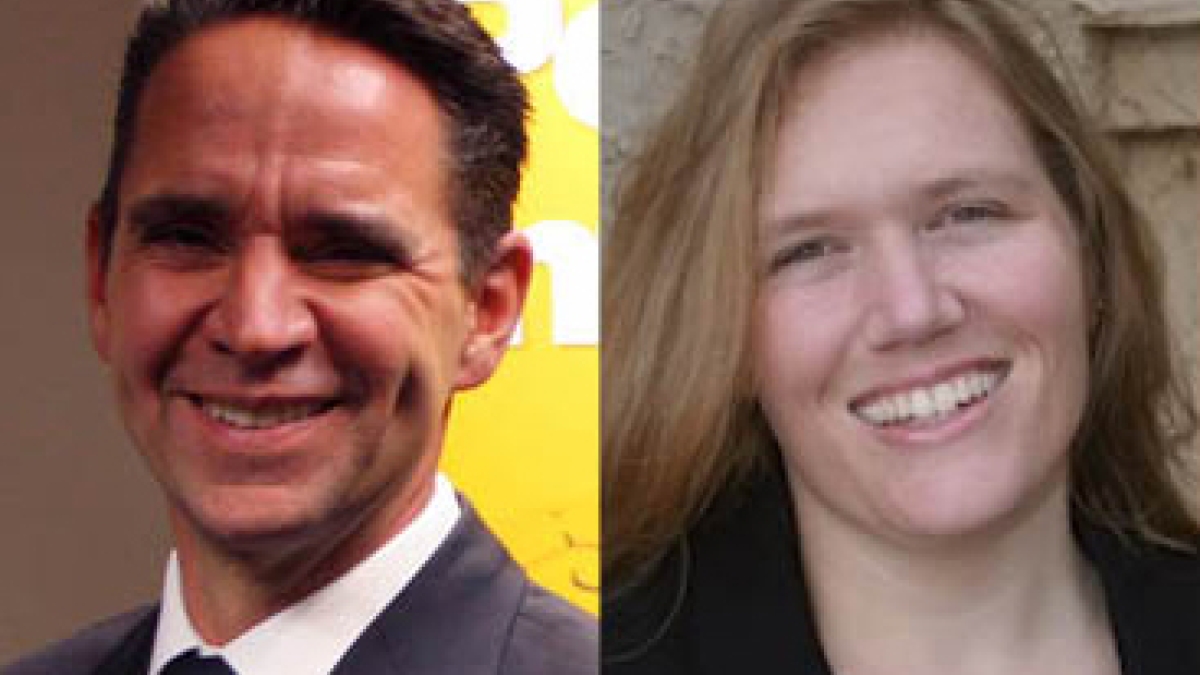ASU seed grants fuel citizen engagement

Researchers in the College of Public Programs’ Center for Policy Informatics (CPI) have been awarded two $10,000 seed grants by Arizona State University’s Office of the Vice President for Entrepreneurship and Innovation under the Citizen Science and Engagement grant program.
Justin Longo and Dara Wald will be working on "Crowdsourcing the Next Great Citizen Science Idea," and Wald will also collaborate with Monica Elser on "Citizen Science to Forecast the Future of a Desert City."
Both projects bring together two key components of ASU’s Citizen Science and Citizen Engagement program: public participation in research and a mentor network.
"Collaborating on the research experience provides valuable knowledge and skills to students, our faculty and the community," says Mitzi Montoya, vice president and university dean for entrepreneurship and innovation. "Our Citizen Science and Citizen Engagement programs give high school students an opportunity to access and participate in research at the university level, and it gives our researchers the opportunity to generate new ideas and perspectives from new partners."
In "Crowdsourcing the Next Great Citizen Science Idea," Longo and Wald, both postdoctoral fellows, will be using a challenge platform to crowdsource ideas for citizen science projects – asking students across Arizona and throughout the country to submit ideas. The guiding principle of this effort – crowdsourcing the next great citizen science project – is that truly novel innovations are more likely to result from distributed approaches because diverse participants bring unique perspectives to the problem.
“This project is a great opportunity for student teams – whether in high schools or at the university level – to imagine new ways to think about citizen science. Through the challenge platform, the team with the most innovative proposal will work with researchers at ASU to bring their idea to life,” says Longo.
“The past five years have seen the idea of citizen science grow dramatically, especially when the Internet is used as the means to get people involved. Projects like the Zooniverse host a range of citizen science projects, from classifying galaxies to transcribing First World War soldiers’ diaries. Internet-based citizen science projects have a few things in common, but they generally take advantage of some things that people still do better than machines, such as reasoning, pattern recognition, interpretation and valuing. And, good citizen science projects have tasks that are short, simple and fun,” he adds.
The Citizen Science challenge launch will coincide with the start of the 2014-2015 academic year later this summer.
The second grant was awarded to Wald, along with Monica Elser, education manager of ASU’s Global Institute of Sustainability, to develop the project "Citizen Science to Forecast the Future of a Desert City." This project will build on current research efforts at CPI and ASU’s Decision Center for a Desert City (DCDC), an interdisciplinary research center funded by the National Science Foundation (NSF).
"Citizen Science to Forecast the Future of a Desert City" aims to develop a web-based water-reporting site, MyFuturePhoenix, to engage citizens in water management efforts. Initially, high school students will track, classify and analyze personal water use data. Once connected to WaterSim, a water policy and management simulation model developed by DCDC, participants will be able to visualize the collective effect of water use decisions made today on the Phoenix area of the future for the year 2050.
“Developing a tool that collects self-reported data will help citizens understand how their choices influence their community today and how they will influence their community in the future,” says Wald.
She adds, “Despite significant advances in knowledge, the availability, quantity, validity and reliability of water use data, especially for mid-sized cities and at the household level across Arizona, is constrained by government resources and policy choices. This citizen science initiative has the potential to contribute data that is currently not available for university researchers, and to collect much more data than one agency or researcher could collect alone.”
“These projects are representative of our belief that students can prepare for lives of service by engaging in problem-solving,” says Jonathan Koppell, dean of the College of Public Programs. “By engaging young students in the process of finding solutions, we show them that at any age, they can be involved in the innovations that make our communities stronger.”
Ongoing projects at Decision Center for a Desert City include social, behavioral and economic studies to inform water sustainability and urban climate change adaptation. The Center for Policy Informatics is working to create mechanisms that bring expertise into governance discussions in an effort to support social decision-making and public participation.